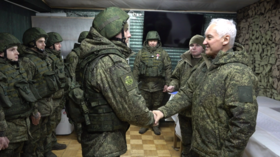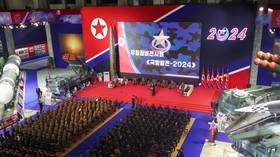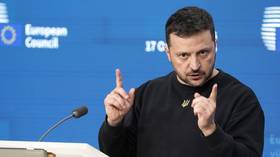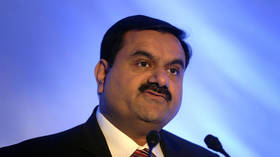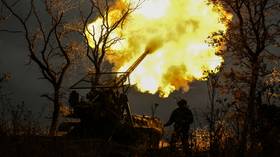‘Both Iran & Saudi Arabia should be at Geneva 2’
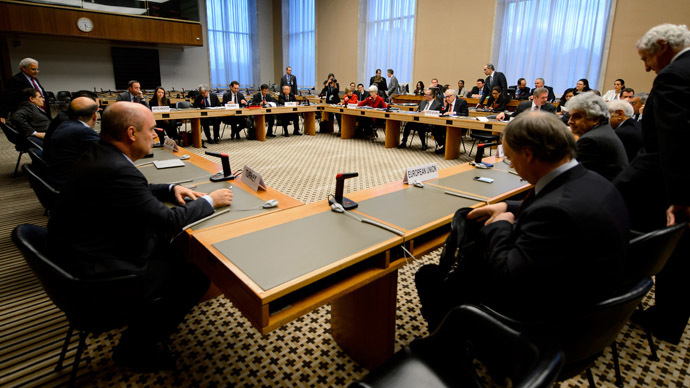
The most of the civil war going on in Syria is a proxy war, so it’s better to involve those states with vested interests from the very beginning, Jan van Aken, foreign affairs expert from the German Left Party, told RT.
It is a bit one-sided to have Saudi Arabia in Geneva, but not Iran, van Aken, who has just returned from a working trip to Syria, said.
RT:Do you think the threat of radicals' attacks could be behind the Syrian opposition groups refusing to take part in peace talks?
Jan van Aken: I doubt that. I think it’s just a political question. It’s not because they are afraid of attacks. It’s very difficult to judge why this group now says it won’t attend the conference. On the other hand, I was during my journey in the north of Syria - it’s the mostly Kurdish populated area. It’s actually the region with more than 4 million people, they want to attend the peace talks but nobody is going to invite them. The High Kurdish Commission in this region now asked all the players at the Geneva talks if they can attend as a non-delegation, but so far it was denied to them.
RT:Are we likely to see other opposition groups follow the example of the National Coordination Committee and not attend the talks?
JA: It’s total guesswork right now. There are so many huddling and infighting in there. I can’t judge who is going to go and who isn't going to go from the different opposition groups or the jihadist groups or whatsoever. I think some of them will attend, but some may not - that’s really guesswork.
RT:But if everyone is not there, how effective could this conference be at the end of the day?
JA: If you want to discuss a peace solution for the whole of Syria then you need to involve of the Syrian fractions, whoever is fighting there. If some parts are missing, like the Kurdish, then it would be very difficult to find a solution for all of it. But even if some are not coming, I think it’s still worthwhile to have the Geneva talks even if we only have a partial solution. It’s better than nothing.
RT:We've seen Moscow insist that Iran should take part. But the Syrian opposition earlier said that if Tehran's there, then there'll be no Geneva Conference.
JA: It’s a bit one-sided, isn't it? It’s totally right to have Iran there but it’s also totally right to have Saudi Arabia. You may love it, you may not love it, but the most of the civil war now going on in Syria is a proxy war. Those countries with vested interests there, and it probably makes sense to invite them. If they don’t take part in the peace talks, then they'll try to circumvent solutions, try to introduce more problems, so it’s probably better to involve them from the very beginning. So from my point of view, yes, Iran should be there and yes, Saudi Arabia should be there.
RT: The regime's chemical arsenal is being eliminated, but no one seems to be addressing reports of the rebels using chemical weapons. Is the international community doing anything about it?
JA: Again, there was a lot of political propaganda. One side always said it was the Assad regime using chemical weapons and nothing of that was proved. The other side always said it was the rebels using the chemical weapons. Nothing of that has been proved. Right now we are at the point where we say: “Yes, it’s proved that there was an attack with chemical weapons, but nobody knows who was behind it.” Right now there’s very good news that these weapons that are in hands of the Assad’s regime are destroyed. And yes, it would be right to have also any kind of chemical weapon that have the rebel groups is destroyed. But so far they didn’t come forward for it.
RT:What is the sticking point which could derail the peace talks?
JA: I think the main problem is that the civil war is a proxy war. You know, Turkey has its own interests - it’s also connected to the Kurdish people there. Saudi Arabia is supporting the jihadists, Iran has its own interests, the Americans and the West, the Russians have their own interests. Right now the people in Syria that are suffering from the different countries that have their own interests. I mean, it’s half of the country that try to flee the war now. It’s a disaster just because all the countries around have their own interests. That’s the sticking point. And all these countries from Russia to the US, from Saudi Arabia to Turkey and to Iran have to step back a bit.
The statements, views and opinions expressed in this column are solely those of the author and do not necessarily represent those of RT.
The statements, views and opinions expressed in this column are solely those of the author and do not necessarily represent those of RT.



